I was asked to write about Minorarc’s latest release, ‘Inclusions’, but more importantly, about the human behind it. I didn’t fully know what to expect, and frankly, even now that I am preparing this piece, it’s difficult to summarise the Australian creative’s eclectic and vibrant life-long commitment to music and art. One thing is certain: he isn’t in it for the money or the fame.
Hear me out: I have run this publication for a good four years now, and one key takeaway I can share with you is that there are two categories of artists. There are the ones who try to fit an ‘industry standard’, adapting to a specific formula and commercial requirements; then, there are the ones who simply don’t care for it, instead pursuing pure, unfiltered artistic expression, wherever it might take them. Well, Minorarc belongs to the latter category. Having spent more than twenty years in the Australian and Japanese underground scene, Ivan Bullock (the human behind the music) has crafted records, written music, promoted shows and supported fellow creatives.
“The music industry has never heavily impacted my work. I think like a lot of underground, self-publishing and independent artists, we kind of exist outside of industry expectations or demands. That’s sort of the attraction to doing it this way”.
Ivan Bullock aka Minorarc
You could say he’s sort of philanthropist, an enlightened artistic soul uplifting everything around him. Perhaps he is: although not by finance, but by mission. Promoting digital and physical community spaces such as DEMUS and Darkstereo, Bullock has always taken a firm interest in the musical buzz around him, himself being a gifted guitarist and the head honcho of two projects, Mystral Tide (legacy) and the current Minorarc.
“That was half the fun, taking a new record home with no preconceptions, ingesting it in full as an album, studying the artwork and liner notes, and feeling a real “connection” to various bands and projects. It bred a kind of loyalty that I think today’s music distribution methods sorely lack.“
Ivan Bullock aka Minorarc
In fact, I have been listening to ‘Inclusions’ while working on this very same article. Minorarc’s latest album, it’s a slice of math, post-rock stylings with a decisive amount of avant-garde matter sprinkled into it. Not for everyone, the record will find its perfect listener in anyone who’s not afraid to delve deeper, not satisfied with the mainstream establishment. The nuanced arpeggio work is at the album’s helm, spanning both guitar and piano. Slow-tempo drum grooves provide an elegant yet gloomy foundation, further enhanced by metal-flavoured, distorted guitar riffs.
Intrigued by Ivan and his deep artistic intelligence, we caught up with the Australian talent to find out more about what motivated him to keep going…to our surprise, he’s not tired yet. Grab a cup of tea, it’s a long, inspiring and interesting account of Bullock’s life choices, and the hidden struggles behind them.
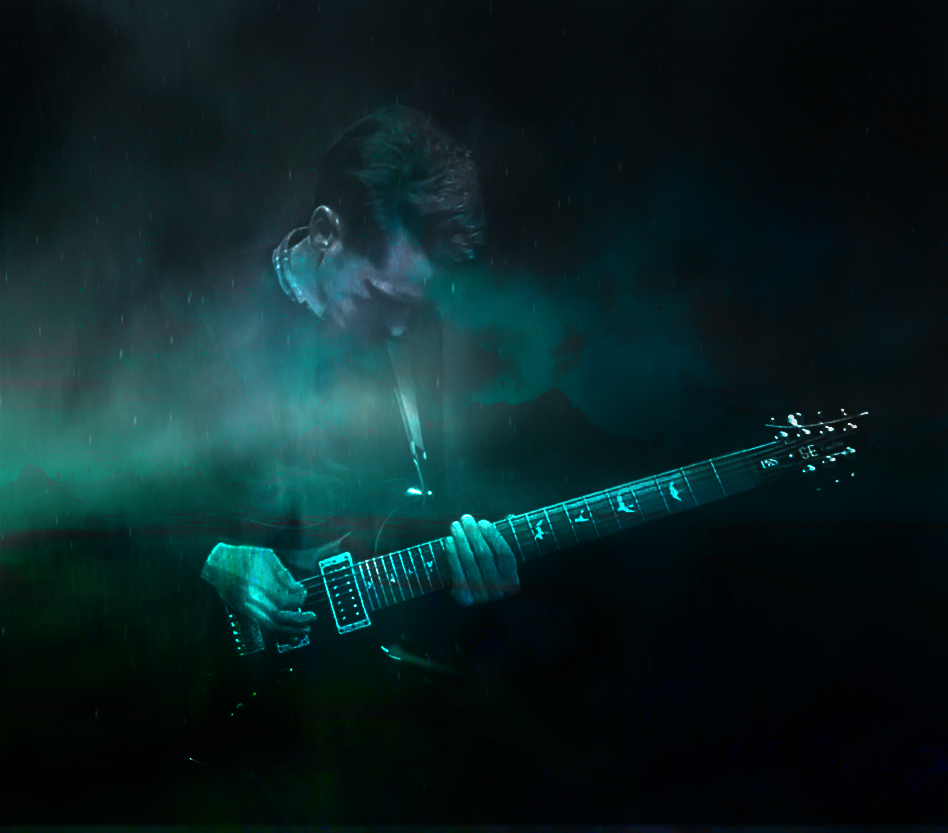
Interview below…
Hey Ivan, thanks for chatting with us! After reading your biography I see a bit of myself in you – musician, promoter and passionate music discovery entity. My first question to you is perhaps quite wide in its scope, but certainly relevant: what motivates you through all of those endeavours? Have you ever dealt with internal doubts or confusion?
Hi Gabriel! Firstly, thank you so much for taking the time to chat with us! It is always such a pleasure to meet people who are passionate about music, particularly things lesser-known. You are one of those kindred souls who put so much personal time into writing about art and working with creators, it is surely appreciated!
Well, self-doubt is most definitely a “thing”. It is a plague for many artists, and I’ve seen it become crippling in some cases, yet in many ways it is also an essential ingredient. Without healthy doses of self-analysis, or some time to stand back and assess what you’re really up to, it can be difficult to find a way forward.
Personally, I find that producing, releasing, performing and organising events for music are very much long-term activities. They are not without their various flavors and levels of stress. Sometimes things need to be adjusted along the way, but that is okay, the whole process is really about improvement and learning. Even after all these years, I’m still enjoying learning new things and trying out different ideas. The world changes quickly, advancements in technology, the after-effects of pandemics, cultural shifts and society wanting to digest or experience art in different ways, so it pays to be flexible and interested in adapting one’s work to suit the overall environment. As for confusion, this hasn’t been much of a problem. There have been times that the motivations or methods of others have been a little perplexing, but through efforts to gain a mutual understanding, it has never posed a great barrier to progress.
The reader of this interview will know already who you are from the written introduction; can you though give us a glimpse into why young Ivan was so attracted to art and music? Would you say it helped you be a better human?
It felt natural to gravitate towards the arts at school, and by extension university and everything else that has come since. Music has always been a comfortable and safe place, an escape, and to be honest, an academic area that I seemed better equipped for than the alternatives.
Art and music offer a sense of “purpose”, and fill a lot of existence’s emptiness. A chance to both experiment and invent along the way. As a timid individual, it offers an avenue for self-expression. Learning instruments may have been a frustrating experience at first, but later in life I could look back and see what a gift it had been, being given an opportunity to acquire some experiences that would change many of life’s future choices. I really wish every child could be so lucky, to be given a chance to find that “thing” that really resonates with them. I think that finding one’s “calling” or “meaning” is very important in terms of quality of life. Along the way, music also became a coping mechanism. Without it, I honestly have no idea what kind of human I’d be today! A much less contented one, I’d expect.
The real eye-opener came when a decent record store finally opened in our city, and without preconceptions, I was able to explore artists from many different genres. At the time, I didn’t realise how iconic a lot of these early discoveries would become. Without streaming media or downloads back then, collecting music was a difficult financial commitment, and one you just had to take risks with. That was half the fun, taking a new record home with no preconceptions, ingesting it in full as an album, studying the artwork and liner notes, and feeling a real “connection” to various bands and projects. It bred a kind of loyalty that I think today’s music distribution methods sorely lack.
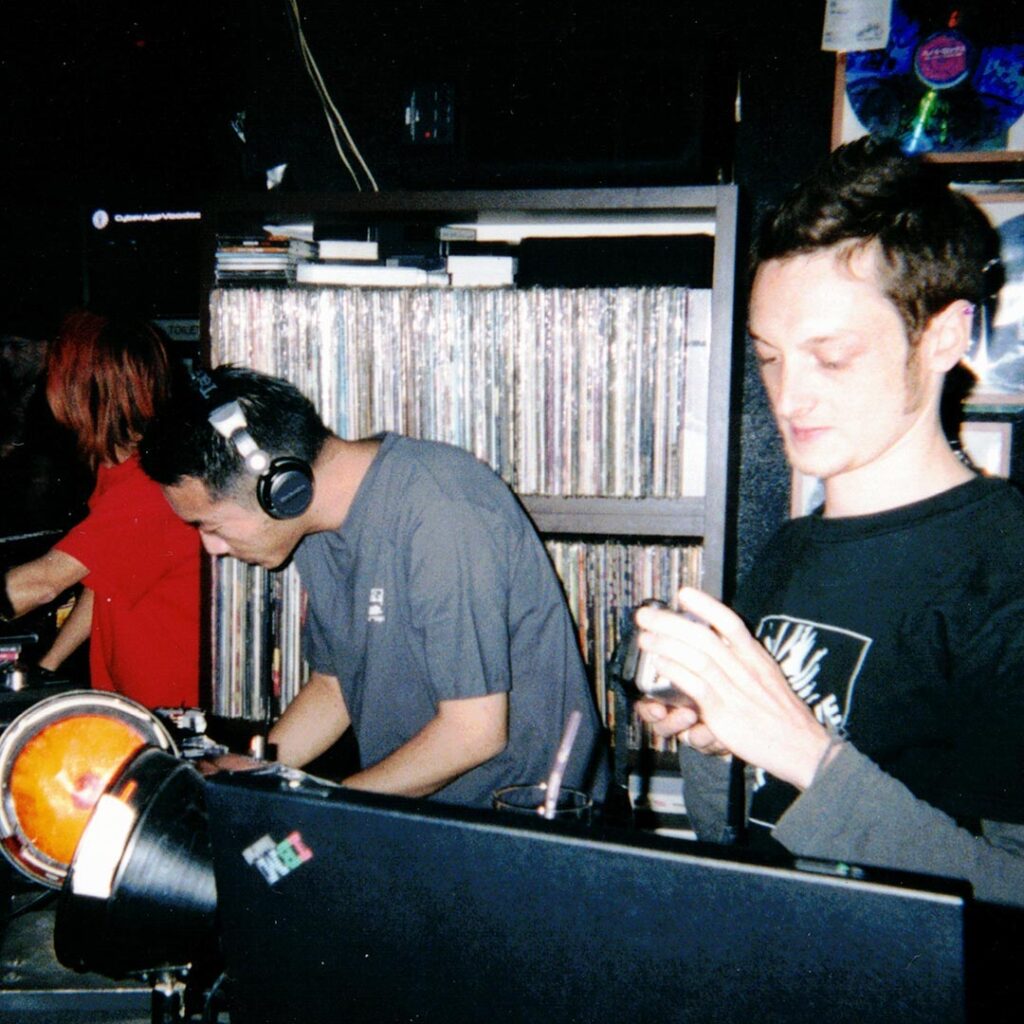
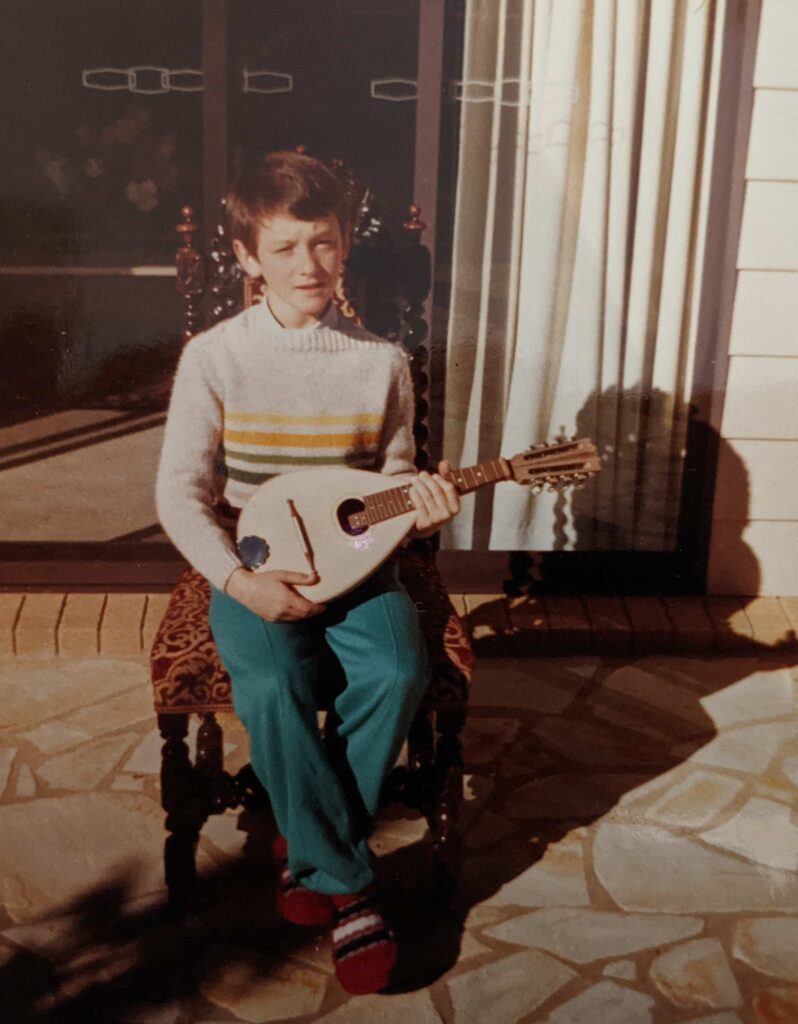
You moved to Japan in your twenties: was there a culture shock at first? How was the music scene there at the time?
Moving from Canberra with its less than half a million population, natural wonders, prevalent animals and bushland scenery, to Tokyo at ten million plus people, and an often endless concrete landscape, really hit hard. A completely different place, and lifestyle too. Yes, the early days there were very hard, working two jobs to make ends meet, not knowing the language, and trying to fit into a tiny “six mat” apartment. It was actually the music scene which saved me from leaving too prematurely. The music-loving people in Japan were nothing short of amazing. Not only were they genuine, friendly, and accepting of a foreigner visiting their shows and clubs, they were fully committed to a passion for music. Experimental and underground music in particular. I made lifelong friends in numerous bespoke gothic and industrial music clubs.
Folks weren’t judgmental, “cliquey” or critical like they were back home. The only solidarity people needed was a love for music in its many genres and forms. Furthermore, they were supportive and genuinely interested in each other’s work. This is what led me towards recording in the first place. Having a network of like-minded colleagues really goes a long way to encourage someone’s creativity, and ultimately decide to take some risks, and put “it” out there.
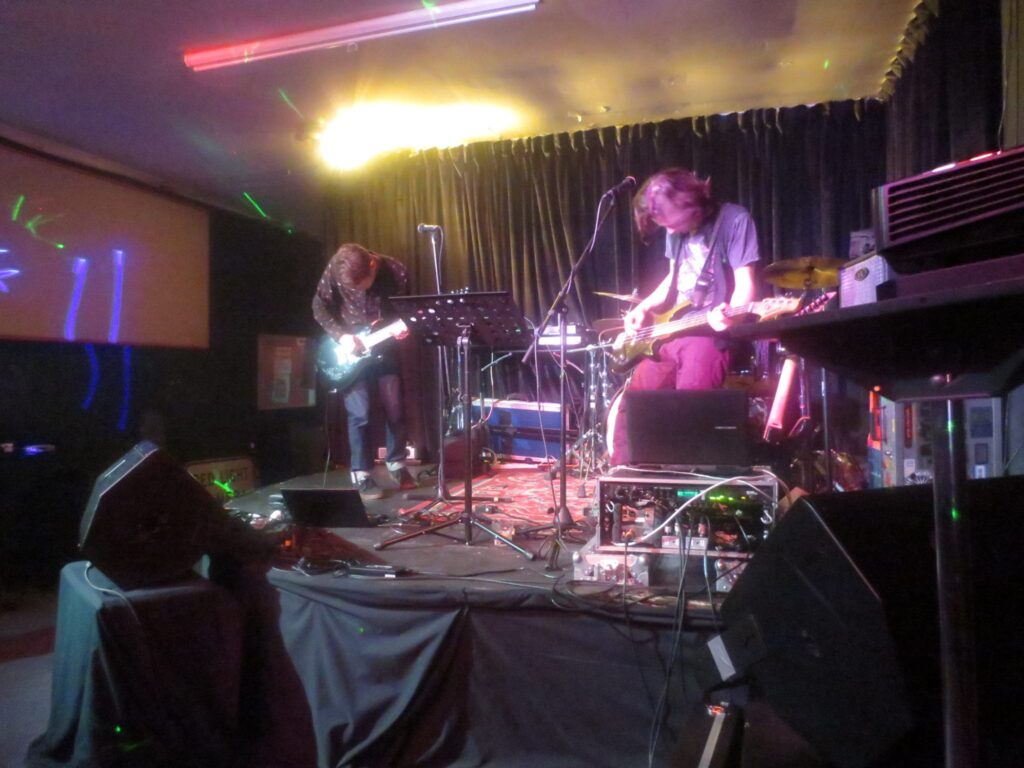
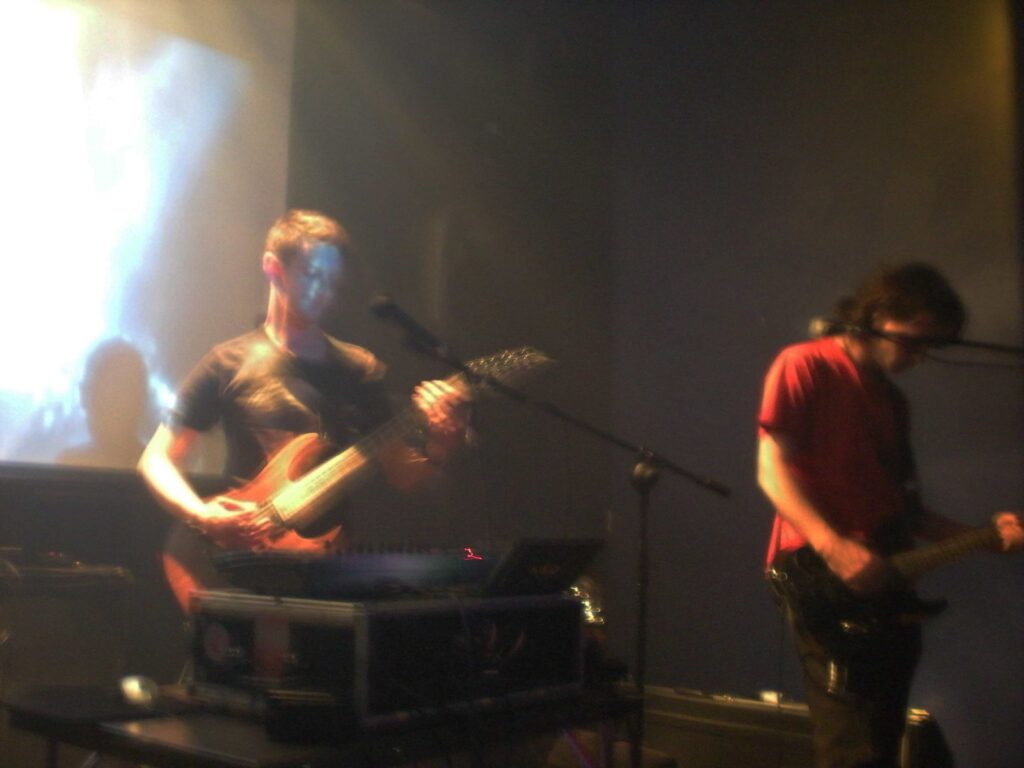
Something I am very interested in: what made you go back to Melbourne, and how did you cope with the relocation?
After four years or so in Japan, I was beginning to crave some of Australia’s greatest assets. Space, in particular. The ability to actually feel “alone” and connected to the natural environment. I also wanted to de-stress and take a breath. My spouse was very supportive of this plan too, as I knew she could really enjoy and flourish in a place like Australia with its many opportunities for creative individuals, flexible expectations, and a gentler pace of life. I did my very best to help her through the culture shock, as it wasn’t a feeling that I’d be forgetting any time soon either.
We lived in Canberra for a while before moving south to Melbourne. It made sense to live in one of Australia’s larger cities, as we both missed the benefits of more densely populated living, yet wanted to balance that with chances to enjoy the natural world as well. There were some tough times and a lot of readjustment, but it all worked out fine in the end. She found her place and calling, and I managed to connect with a lot of independent musicians to form a community. From there we started organising regular live music events, operating a label, and things just organically grew.
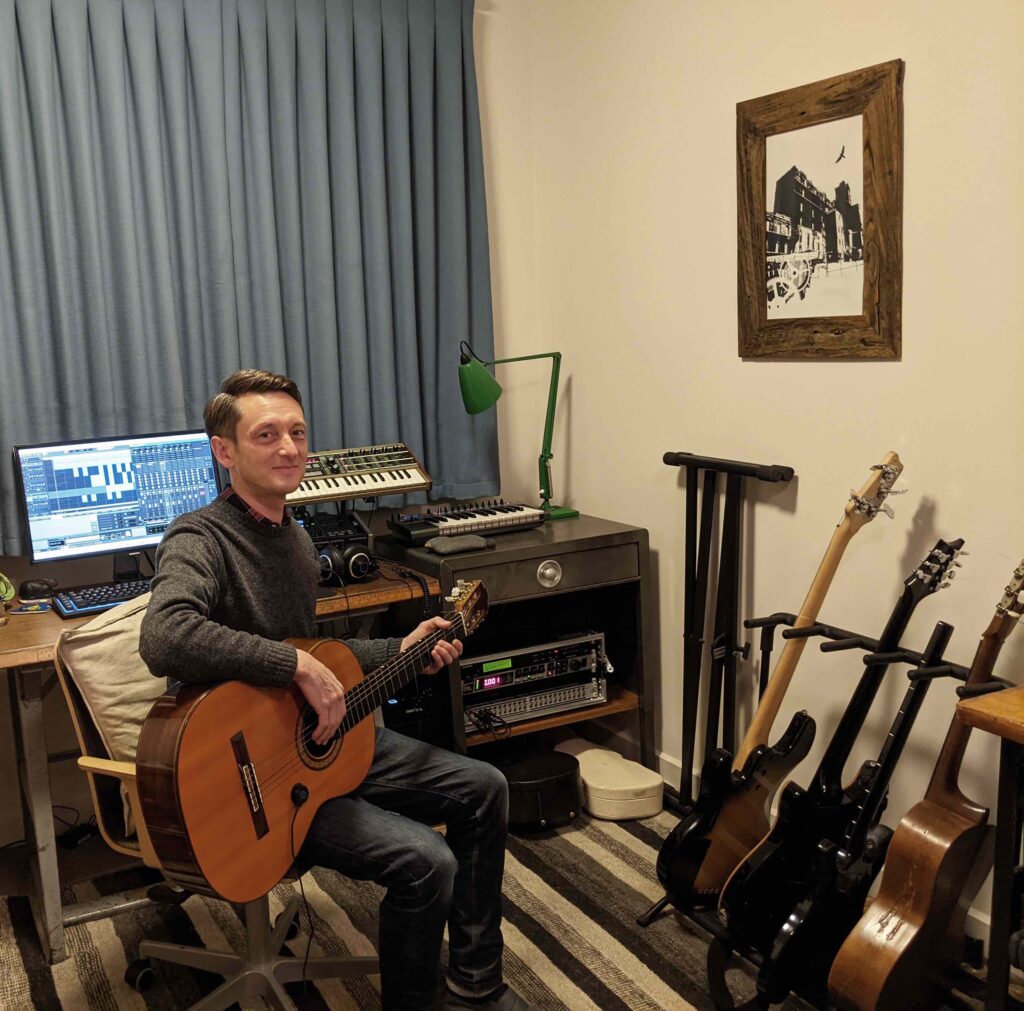
Mystral Tide and Minorarc are projects that have a special place in your development. Would you say that Minorarc is the consequence of MT?
Minorarc could consider Mystral Tide as its direct ancestor I guess. MT was all about finding my feet, coming to terms with the technicalities of recording, getting a feel for how to promote music, and also how to perform. After all that, a point came where I felt a need to “move on”, and also explore some other varieties of music. It just made sense at the time to kind of re-brand, and start something new with a relatively clean slate. Eliminating the pre-conceptions of past work really allowed me to start thinking differently, and spend more time just exploring options, be they thematic, technical or stylistic choices.
What’s your opinion on the many ways the music industry has changed today, compared to twenty years ago?
In all honestly, the music industry has never heavily impacted my work. I think like a lot of underground, self-publishing and independent artists, we kind of exist outside of industry expectations or demands. That’s sort of the attraction to doing it this way. We can adapt when we need to, and choose to follow in some instances, or go against the grain in others.
That said, there have been many industry-lead developments for better or worse, that have made self-publishing a very different process to what it used to be. Back when I started, CD was king. Thankfully, consumer-accessible CD burners became available, and no longer was a financial investment in professional studio time and high-volume manufacture an issue. The only problem was the gatekeepers. DJs and radio kind of held the keys to getting any reasonable exposure.
The challenge came in finding ways around this, which we soon discovered was seeking independent coverage, placing discs into smaller genre-focused CD stores, and getting out to perform and meet real people. These days it all feels quite different. There are no great barriers to producing music, other than an investment in time and learning how to craft what you want. The problem now is about listeners and their behaviour. Streaming has really changed things. We’ve traded ease of accessibility for listener loyalty. We’ve traded financial rewards for convenience. The temptation to rely on a computer to do marketing, rather than actually engage with the outside world, has lost a lot of the former personal charm. It is all good and bad. It is great that there is now so much easily accessible music around for people to enjoy!
On the downside, capturing the listener’s attention and trying to have works consumed as an “album”, is very difficult. Nothing feels “permanent” anymore, in the way an actual record purchased from a brick-and-mortar store used to. I guess artists can either choose to accept this, and adapt, or fight back somehow. I’m very curious what the future will hold, now with AI entering the scene as well. Will music become even further devalued? Or will it only end up adding extra weight to creations which are real, personal and human?
What are the next steps for your Minorarc and Ivan Bullock? Anything exciting on the horizon?
Minorarc is in a funny place right now, kind of lurking between past and future. We’re working on rehearsing a lot of pieces from 2020 onwards to make them performance-ready. This has been a huge job of reverse engineering tracks, rearranging material and finding fellow musicians to play alongside. My aim is to make the concerts very “real”, with no computers on stage, and plenty of space for jazzy improvisation.
Back in the studio, I have a side-project going on, in re-mastering and updating Mystral Tide’s 2001 release “Whirlpool of Souls”. We’d like to bring out a 25th Anniversary Edition in 2026! This album really solidified our future, so it is really enjoyable to revisit it and reinterpret the work in a more modern, and “Minorarcian” context. Aside from that, I still write interviews and reviews for musicians, site owners, podcasters etc at darkstereo.com, and look forward to organising some events for the Melbourne Fringe Festival either this year and/or next.



